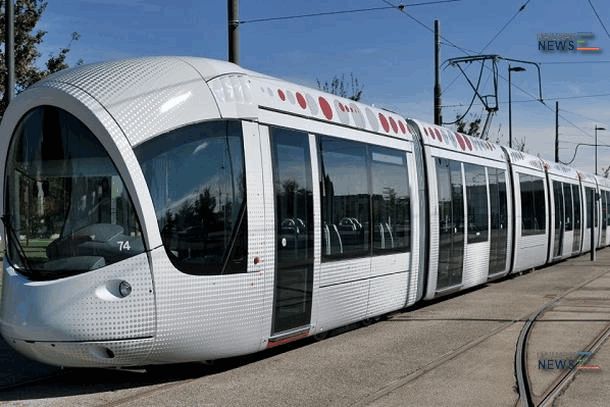HS2 Cancellation: £100M Loss, Rail Chaos

This article analyzes the significant financial and logistical ramifications stemming from the UK government’s decision to cancel Phase 2 (the northern leg) of the High-Speed 2 (HS2) project. The cancellation, announced in October 2023, has proven far more costly than initially anticipated, raising serious questions about project planning, cost management, and the overall strategic vision for the UK’s rail infrastructure. The subsequent report by the UK’s National Audit Office (NAO), a government body responsible for evaluating public spending efficiency, provides a detailed account of these unforeseen expenses and their implications for the country’s railway network. This analysis delves into the financial burden of the cancellation, the environmental remediation required, the impact on land acquisition, and the long-term consequences for the West Coast Main Line (WCML), a crucial artery for both passenger and freight transport. Finally, it will assess the political fallout and the urgent need for a revised national rail strategy.
The Financial Fallout of HS2 Phase 2 Cancellation
The NAO report highlights the staggering costs associated with halting Phase 2 of the HS2 project. The cancellation is expected to cost at least £100 million ($130 million) in remediation alone. This includes refilling over 10,000 boreholes, restoring disturbed landscapes, and managing the environmental impact of the preliminary construction work already undertaken. Beyond remediation, the government faces significant losses related to the 17 square kilometers of land acquired through compulsory purchase orders (CPOs) at a cost of £592 million ($764.5 million). The report indicates the process of reselling this land will be protracted and potentially yield only partial recovery of the initial investment. Furthermore, the cost overruns on Phase 1, originally budgeted at £44.6 billion ($57.5 billion) and now projected to exceed £6 billion ($7.8 billion), further exacerbate the overall financial implications of the decision. The total cost could reach almost £60 billion.
Environmental Remediation and Land Disposal
The environmental impact of the cancelled Phase 2 necessitates extensive remediation efforts. HS2’s contractual obligations mandate the restoration of land to its pre-construction state. This involves substantial work to reverse the environmental changes caused by the initial phase of the project. The complexities involved in returning the acquired land to its original condition are substantial, involving not only geological restoration (e.g., refilling boreholes), but also ecological rehabilitation, potentially taking several years. The sale of the 179 parcels of land (approximately 9 square kilometers) identified as potentially returnable to previous owners faces significant challenges due to its altered state and lengthy legal processes. The long-term impacts on the surrounding agricultural land and the farmers involved are also significant concerns.
Impact on the West Coast Main Line (WCML)
The cancellation of Phase 2 significantly undermines the original strategic objectives of HS2. The project aimed to alleviate congestion on the already heavily utilized WCML by diverting high-speed passenger services to the new line and freeing up capacity for freight transport. Without Phase 2, the promised decongestion will not materialize. HS2 trains will operate on existing lines north of Birmingham, causing bottlenecks and limiting capacity improvements. The report suggests that the WCML will reach its capacity limits by the mid-2030s, making it imperative to address this issue with substantial infrastructural investment. This lack of capacity increase not only negatively impacts passenger travel but also restricts the potential economic benefits associated with efficient freight transport.
Political and Strategic Implications
The NAO report reveals a considerable miscalculation in the government’s decision to cancel Phase 2 of HS2. The claim that the project’s benefits could be realized without the northern leg has been soundly refuted. The reduced scope has significantly diminished the potential positive impacts on passenger travel, freight transport, and economic growth. The report’s release has generated strong criticism from industry experts, who highlight the “untenable” situation created by the lack of capacity on the WCML. The current government faces pressure to develop a comprehensive plan for expanding rail capacity north of Birmingham, preventing the city from becoming a rail terminus rather than the intended national hub. The substantial financial implications and the long-term consequences for the UK’s transport network underscore the need for a carefully considered national rail strategy.
Conclusions
The cancellation of HS2 Phase 2 has proven to be a costly and strategically flawed decision. The NAO report meticulously details the substantial financial burden – exceeding £100 million in remediation costs alone, plus significant losses related to land acquisition. The environmental remediation process, involving the restoration of disturbed landscapes and the refilling of thousands of boreholes, will require years to complete. The cancellation’s impact on the West Coast Main Line (WCML) is particularly concerning, as it negates the original plan to alleviate congestion and jeopardizes future capacity. The WCML is already nearing its capacity limit, threatening both passenger travel and freight transport. The project’s cancellation undermines the strategic objectives of HS2 and risks hindering the UK’s economic growth. The report’s findings underscore the necessity of a revised national rail strategy that addresses the urgent need for increased capacity north of Birmingham. The government must acknowledge the untenable situation created by this decision, and implement a solution that prevents the creation of bottlenecks and ensures the efficient movement of both passengers and freight. Failure to do so will have profound and long-lasting negative repercussions for the UK’s rail network and its economic future. The experience serves as a cautionary tale about the crucial importance of thorough planning, accurate cost assessments, and a long-term strategic vision in large-scale infrastructure projects. The financial costs, the environmental impact, and the strategic implications of the decision necessitate a comprehensive reassessment of the UK’s rail infrastructure development strategy.



